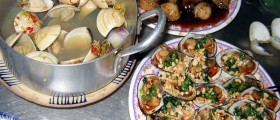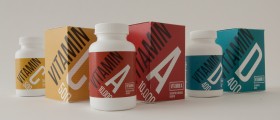
Calcium is an important nutrient and it should be consumed in the adequate amounts in all periods of life, but it is particularly important for children and adolescents. Calcium is absolutely essential for normal bone and tooth growth, but unfortunately, several studies performed in the United States have shown that only a small percentage of children and adolescents meet the recommended daily intake of calcium through their diet.
It is important for parents to recognize the importance of calcium and to learn which foods are good dietary sources of this nutrient.
Daily calcium needs
It is estimated that the required daily intake of calcium for adults is 1000 milligrams. However, this only goes for adults, as children at different ages have different needs. For example, a child between one and three years of age requires 300 milligrams of calcium per day, between four and eight years of age 800 milligrams and 1.300 milligrams between ages nine and 18.
When checking food labels for calcium content, it is important to keep in mind that the values expressed in percentages refer to the daily value for adults. Children need less than that and adolescents need more.
Dairy sources of calcium
Everybody knows that milk is good for health because they have been hearing about it ever since they were small kids. This is because milk is an excellent and one of the most important sources of calcium, and that is why children must drink it every day. Children should have three dairy meals a day, and adolescents need four. Aside from milk, other dairy products that qualify as good sources of calcium include yogurt, cream, milk shake, cheese, foods containing dairy ingredients like macaroni and cheese, nachos, pudding, and many more.
Non-dairy sources of calcium
Dairy is not suitable for everyone, and today more and more children are lactose-intolerant. They still need to meet their daily requirement of calcium, so their parents should know what other sources of this mineral are there.
Good non-dairy sources of calcium include sardines, salmon, tofu, spinach, collard greens, okra, beans, broccoli, peas, sesame, bok choy, almonds, rhubarb, turnip greens and Brussels sprouts.
Calcium can also be taken in form of supplements or in fortified foods. Many food brands today offer calcium-fortified foods, especially cereals, orange juice, soy milk, oatmeal, bread, English muffins, crackers, chocolate bars and many more.
The best way to ensure a proper intake of calcium is to combine different sources. For example, a good and calcium-rich lunch or snack can include grilled cheese sandwich with calcium-fortified bread and half a cup of low fat milk or milk shake.

















Your thoughts on this
Loading...